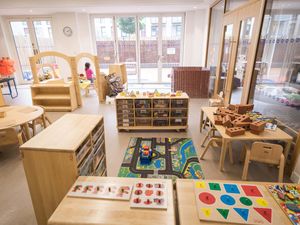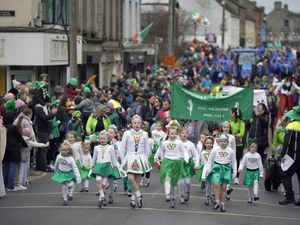High childcare costs among issues highlighted in rights watchdog’s report to UN
The EHRC also warned about health inequalities, poverty and worker exploitation.

The rising cost of childcare and reduced access to it in recent years have been raised by Britain’s human rights watchdog as it submitted a report to the United Nations (UN).
The Equality and Human Rights Commission (EHRC) said despite efforts by governments to cover some costs, prices remain high and the poorest families have not felt the benefits.
The warning came as it highlighted “areas of concern” in a wider report, urging Government to do more to tackle issues ranging from exploitation of people on work visas to the use of foodbanks.
The analysis is an update from the EHRC to the UN on economic, social and cultural rights in Britain and changes since the last time the UK – as a signatory to the International Covenant on Economic, Social and Cultural Rights (ICESCR) – was up for review in 2016.
The EHRC acknowledges major events such as Brexit, the pandemic, global conflict and economic instability, as well as changes in government in the past nine years.
Commission chairwoman Baroness Kishwer Falkner said that despite some improvements on some issues, there remain “areas of concern”.
She said: “Health inequalities have widened, relative poverty rates for certain groups have risen, and too many working with visas in the UK face exploitation.”
In its 100-page submission to the UN, the equalities watchdog said: “The provision of childcare decreased and costs rose in Great Britain since the UK’s previous review under ICESCR.
“Although governments implemented programmes to solve some of these challenges, analysis indicates that they may not have sufficiently supported families on low incomes.”
The commission referred to existing evidence suggesting “particularly low levels of provision for certain groups, including disabled children”, as well as price increases for part-time nursery places for children under two between 2023 and 2024.
The watchdog referred to evidence to MPs in recent years that some parents in England are reducing working hours or buying less food to meet childcare costs, and charity research in Wales which found childcare costs were having a bigger impact on parents than mortgages or rent.
The report also highlighted previous analysis indicating recruitment and retention pressures within the childcare workforce, and that the poorest third of families would see almost no direct benefit from free childcare entitlements “because they are only available to children in ‘working’ families, meaning parents who are not working or earning enough are not eligible”.

A commission spokesperson said high-quality and affordable childcare “can have positive impacts across other key areas of life referenced in our submission, including employment gaps and child poverty levels which are currently at their highest since 2006”.
Elsewhere, the commission said evidence suggests “certain sponsored visa schemes enabling foreign nationals to work in the UK have been associated with a rise in labour exploitation such as illegal recruitment fees, debt bondage and wage underpayment”.
Among a series of recommendations, the report urged that the Government must, as part of its new Fair Work Agency – described as a simplified and strengthened system to protect workers and ensure justice in the workplace – “ensure there is continued and improved monitoring of worker visa schemes to ensure recipients are not subject to labour exploitation and to ensure they are aware of their rights”.
The report also highlighted food insecurity and food bank use across England and Wales, which it said was “more common in households with children, a disabled person, or a head of household that was of working age”.
The commission said the launch of a Child Poverty Taskforce to develop a UK-wide strategy, due to be published in spring, is a welcome step.
A further recommendation from the commission urged the Government to “ensure that the social security system supports the right to an adequate standard of living, and that it is accessible and effective for all, including by conducting a review of the use of sanctions to ensure that groups sharing certain protected characteristics are not disproportionately impacted”.
Baroness Falkner, said: “Our report to the UN calls on central and Welsh governments to take action on recommendations to help enhance enjoyment of economic, social and cultural rights for all, making Britain a fairer place for everyone.”





